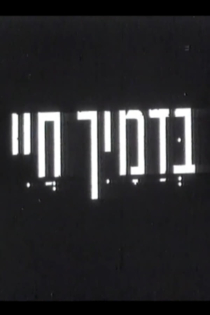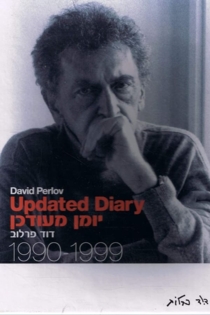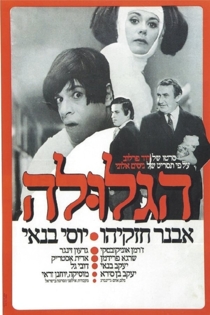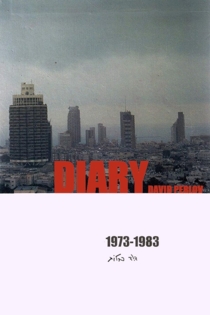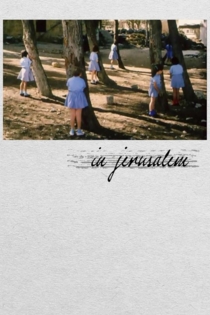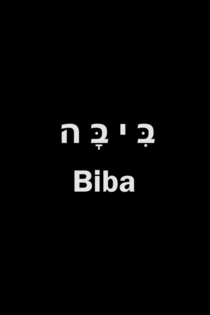
David Perlov
1930 - 2003Mes entretiens filmés
Boris Lehman
François Albéra, Jean-Marie Buchet
This distinctly personal journey into the artistic possibilities of independent film is not to be missed. Jonas Mekas, Jean-Pierre Gorin, Robert Kramer and many other visionaries and mavericks of the silver screen – as well as a book seller, a critic and a psychoanalyst – discuss what cinema has meant to them, what it is and what it could be and, implicitly, how it has changed over the 18 years in which this film was shot. Director Boris Lehman leads the charge, drawing in moments of absurdist humour and inventive camera work; he keeps things raw and spontaneous. His encounters with the now much-missed Jean Rouch and Stephen Dwoskin are particularly touching and stand testament to their personal playfulness and candour. An engaging, absorbing, epic odyssey of a movie.
My Conversations on Film
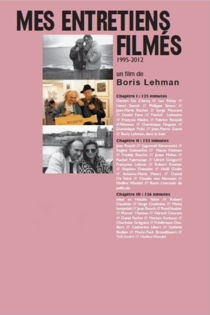
In Search of Ladino
David Perlov
In Search of Ladino follows Ladino speakers, their culture, their memories and hopes for their mother tongue. This unique film is one of the earliest works presenting Ladino-speaking Holocaust survivors in Israel, and it provides rare documentation of their testimonies and songs. Filmmaker David Perlov’s camera glances on the faces of the people, as he listens carefully to their stories and songs. The film was meant to be part of a trilogy about languages: Hebrew, Yiddish and Ladino, but Perlov only managed to make the first film.
In Search of Ladino
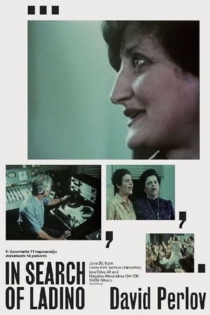
תצלומיי 1952-2002
David Perlov
My Stills, 1952-2002, David Perlov's last film, is based on his still photographs. It is formed as a triptych: the first part takes the viewer on a journey to the very roots of the image, the frame, the angle, the light, and the frozen movement of people, and contemplates stills and cinema photography. The second part revolves around three photographers whom Perlov deeply admired: David Seymore, Henri Lartigue, and Henri Roth (the latter's photographs served as evidence in the Eichmann Trial)
my stills 1952-2002
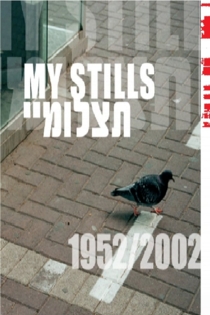
Memories of the Eichmann Trial
David Perlov
Two decades after the Eichmann trial in Jerusalem in 1961, director David Perlov talks to trial witnesses, Holocaust survivors and their families about their memories of the trial. The documentary was only broadcast once in Israel in 1979 before it was restored in 2011.
Memories of the Eichmann Trial
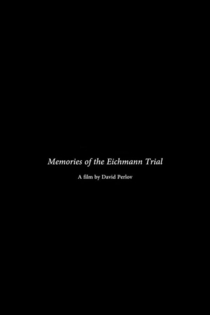
Fisherman In Jaffa
David Perlov
A lyrical documentation of the world of Jaffa's fishermen. The influence of British documentary tradition - as well as the films of directors like Joris Ivens or Georges Franju - is evident in Fishermen in Jaffa. In a carefully-planned frail structure of narrative, the film progresses from daylight to night. In it Perlov creates at the same time a vast, panoramic view, and an intimate, private one - whether he films a lone cat wandering on the dock, or the glowing faces of the fishermen. This early film already depicts Perlov's unique style.
Fisherman In Jaffa
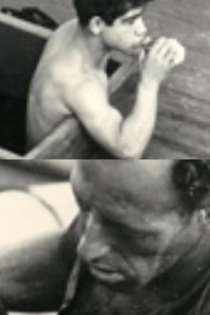
In Thy Blood Live
David Perlov
Candles, tears of crying women, memories: that is how the film In Thy Blood Live begins. David Perlov's camera travels over photographs, focuses on faces that are no more, as in a gesture of parting. The history of the Holocaust is revealed in this film in a condensed, intensive way: first the memorials for the victims throughout Israel, and only then the beginning of it all - the rise of the Nazi regime, the Ghetto with its hunger and death, but with its music and theatre too, the uprising, the death camps; and it ends with the trial of Adolf Eichmann, one of the chief architects of the genocide. The music of Oedoen Partos, blending Jewish, Israeli and European motives, helps portray in sounds that lost world which now belongs to memory alone
In Thy Blood Live
